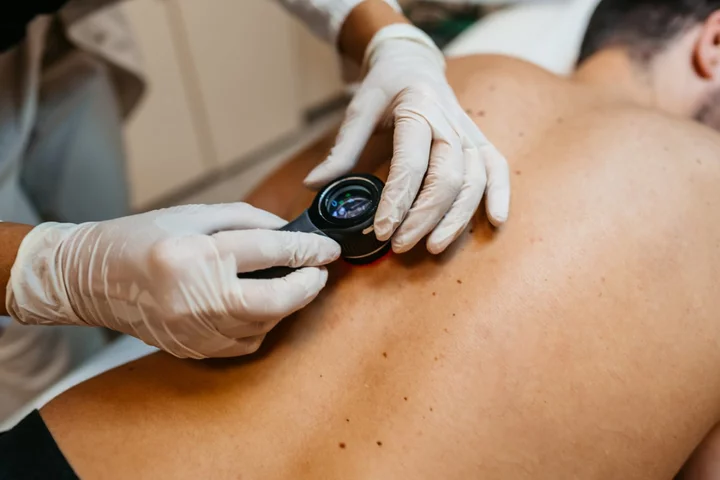
What is Merkel cell skin cancer? The signs and symptoms of the rare condition
Jimmy Buffett died aged 76 on Friday (1 September), in hospice care, after a years-long private struggle with skin cancer. In a statement shared on his website, it was announced that the singer, who was best known for his hit song “Margaritaville”, had been fighting Merkel cell skin cancer for four years. Cancer Research UK has recently warned that skin cancer cases are set to rise by half by 2040, with rocketing diagnoses driven by the “cheap package holiday” boom of the 1960s. Skin cancer is the most common form of cancer in Britain and kills around 2,100 people each year. It is also one of the most common cancers in the world. What is Merkel cell skin cancer? Merkel cell carcinoma (MCC) is a rare type of skin cancer. According to Cancer Research UK, it starts in the Merkel cells, which are usually in the top layer of the skin. These cells are near the nerve endings and they help us respond to touch. The charity states that MCC is a “very rare” form of skin cancer, with 1,500 people diagnosed with the condition in England between 1999 and 2008. What are the causes of Merkel cell carcinoma? With most types of skin cancer, long-term exposure to sunlight can increase a person’s risk of getting MCC. Other factors that could increase a person’s risk include being exposed to ultraviolet light, having a condition that can weaken your immune system or having a virus called Merkel cell polyomavirus (MCPyV). What are the symptoms? MCC usually appears as lumps on the skin. According to Cancer Research UK, the lumps are often a blue/red colour and less than 2cm across but sometimes they can be larger. The skin over them is usually firm and they are not painful. These lumps are often found on the areas of the body that get the most direct sun, such as the head, neck, arms or legs. Unlike most common types of skin cancer, MCC can develop rapidly over weeks or months and can spread to other parts of the body such as the lungs, lymph nodes, liver or bones. The NHS advises that if you are in doubt, contact your GP. How to prevent developing skin cancer Skin cancer is not always preventable, but you can reduce your chance of developing it by avoiding overexposure to UV light. You can protect yourself from sunburn by using high-factor sunscreen, covering up your skin while in the sun, and limiting the amount of time you spend in the sun during the hottest part of the day. Sunbeds and sunlamps should also be avoided. Read More Pregnant Kourtney Kardashian and Travis Barker seen leaving hospital after ‘urgent family matter’ Woman adopts husband’s ex-wife’s baby after growing up in foster care herself ‘People looked at me like I was oppressed in some way’: Young Christians on life in secular Britain How to check if you have skin cancer: Symptoms and signs to look out How many times a week you need to workout to get fit Post Malone shows off 55-pound weight loss in new photos after giving up soda
2023-09-03 22:48
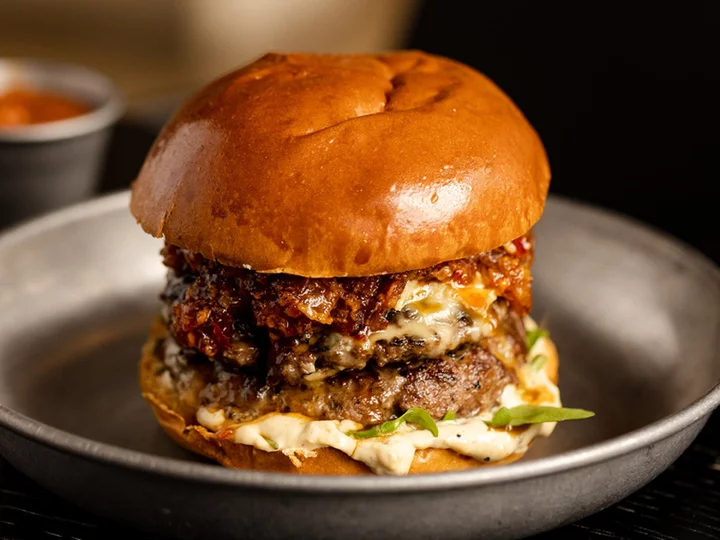
Epicurus: American fast food meets the Middle East in Camden Market
Camden has long been known as the spiritual home for misfits. Come, all ye oddballs, the streets of Camden scream. All are welcome! Although nowadays it’s a little less punk haven and a little more tourist trap (yes, I’m looking at you, pastas dunked into cheese wheels), there are still pockets of Camden that have retained its unconventional charm. It’s also where punky pair and Israeli chefs Shiri Kraus and Amir Batito have set up shop for both their restaurants, The Black Cow and the newer Epicurus, just minutes away from each other. Like The Black Cow, modeled after the classic American steakhouse but infused with Middle Eastern flavours, Epicurus takes its culinary cue from across the pond. This time, Kraus and Batito decided to focus on the all-American diner and put their Israeli twist on classics like pancakes, wings and ribs. When I ask if this is because American food is a bit of a blank slate, Kraus swiftly corrects me; to her, it’s all about the excitement of infusing the character of American cuisine with Israeli flavours and seeing what’s possible. It’s a pairing that I think is unusual, but to the chefs, makes perfect sense. It’s a warm, balmy day when I make my way to Epicurus to meet my friend, as well as Kraus and Batito. The outdoor space is placed tantalisingly in the late afternoon sun, so we bask in it as our tiny table fills up with more plates than is sensible. The quirky menu features punny dish names like “Chip Chip Hooray”, “Raspoutine”, “Top Dog” and “Sloppy Yossef”, which I find immediately endearing – my love for a good (or even bad) puns knows no bounds. We are instructed to eat as many things as possible with our hands, although Kraus concedes: “You could use a fork, I’ll only judge in silence.” We find delight in the “Oof Gozal” – chicken wings coated in a yellow Amba mango and Scotch bonnet sauce. Despite the use of the fearsome chilli, these wings are barely spicy, favouring the flavour of the Scotch bonnet over the heat. They are incredibly moreish and the fact that your fingers end up being absolutely covered in sauce is only an invitation to get licking. You should also definitely get the “Papi Chulo”, a mix of crunchy deep-fried okra and soft padron peppers covered in spices that come with a lemony-garlicky-chilli aioli for dipping. It’s brilliant for snacking on in the sun. Another honourable mention goes to the Epicurus single decker burger, which is also available as a double. It contains some of the richest, fattiest ingredients I’ve ever seen between buns, like bone marrow aioli and Baron cheese, and it does border on being a bit too unctuous. The Harissa bacon jam helps pull it back a little, but only just. Would I eat it again? Definitely. But I probably would get a salad instead of chips to make myself feel slightly better about ingesting all that fat. I am usually glad when menus don’t have calorie counts – even when they do, I avert my gaze determinedly – and boy, am I really glad there’s no calorie count on this menu. Not everything hits the spot, which I’m hoping Kraus and Batito will be able to tweak until they do. The “Dakdakim”, pancakes stuffed with pulled shawarma chicken, has the trappings of something great, but the addition of both bacon jam and spiced quince make the dish too sickly sweet. Meanwhile, the rack of babyback ribs covered in a deliciously tart-yet-sweet date honey and pomegranate molasses needs a bit more fat on the bones to make it truly delectable – otherwise the mouth-puckering quality of the sauce make the too-lean ribs a bit too dry to really enjoy. But these are small gripes, and ones that I’m happy to forgive if they are improved upon. Is it worth elbowing your way through the thronging crowds of Camden Lock Market to get to Epicurus? I think it will be. Never mind the cheap tat and endless boba tea shops (most of which are simply not very good, there are better places to visit boba tea that isn’t just a sugar bomb) – head to Epicurus for a tasty escape. Epicurus, Unit 90, Camden Stables Market, Greater, London NW1 8AH | www.epicuruscamden.co.uk | 07843 199560 Read More Dorshi, Dorset: Funky Malaysian dumplings are a hit on the south coast National Burger Day 2023: The best burgers in London and where to eat them The best outdoor restaurants, terraces and rooftop bars in London to book now
2023-09-02 19:20
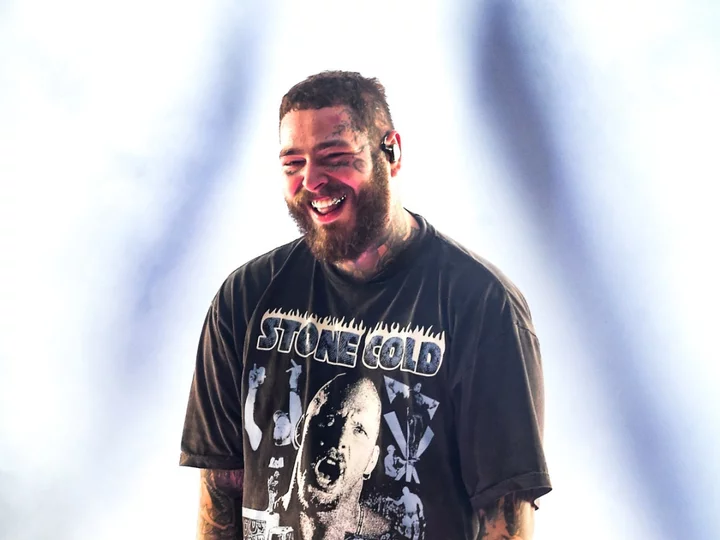
Post Malone shows off 55-pound weight loss in new photos after giving up soda
Post Malone has shown off his weight loss in new photos after revealing he gave up soda in an effort to become healthier. On 28 August, the “Sunflower” singer — whose real name is Austin Richard Post — shared with his Instagram followers a full-body mirror selfie of his new look. In the photo, he was dressed in all black head to toe, with the singer writing in the caption: “Introducing Viceroy Chungus VonBattlepass, I love you.” During an appearance on The Joe Rogan Experience podcast on 8 August, the singer credited his weight loss with cutting out soda as well as performing regularly for his “If Y’all Weren’t Here, I’d Be Crying” Tour, which started on 8 July. He revealed to the popular podcast host that he went from 240lbs to 185lbs, effectively losing 55 pounds. In the past, the singer said that his post-show rituals would usually include him indulging in a soda. “Shows, soda,” he elaborated to Rogan about his guilty pleasure. “Soda is so bad. It’s so bad, but it’s so good. I’ll have a soda. I’m a bad boy and I’ll have a Monster energy [drink].” He added, “I had a great show, and you know what, I’m feeling a little bit naughty. I’m gonna have myself a Coke on ice.” Cutting back on soda is one of many lifestyle choices the singer has made this past year. Ever since welcoming his baby girl in 2022 with his fiancée, he revealed that he has “never felt healthier,” and is “the happiest [he’s] been in a long time”. In an April Instagram post, he wrote that he started making healthier choices for the sake of his daughter. “I guess dad life kicked in and I decided to kick soda, and start eating better so I can be around for a long time for this little angel,” the singer said. According to Dr Elizabeth Ko and Dr Eve Glazier from UCLA Health, drinking soda has been linked to many adverse health conditions, including "obesity, poor blood sugar control, and diabetes”and “recent studies have found an association with high blood pressure, high cholesterol, and heart disease”. The doctors also noted that research indicates that drinking at least one soda per day “measurably increases the risk of developing Type 2 diabetes”. Though some might suggest diet sodas as an alternative, the doctors wrote that they are “not any better” because they can increase hunger and disrupt metabolism. The “Circles” singer doesn’t intend to stop his wellness journey by just cutting back on soda and eating better, he also said he plans on cutting back on “smokes and brews” as well. Read More Post Malone reveals his fiancée turned him down the first time he proposed Post Malone hits back at false ‘rumour’ about hard drug use
2023-09-02 05:27
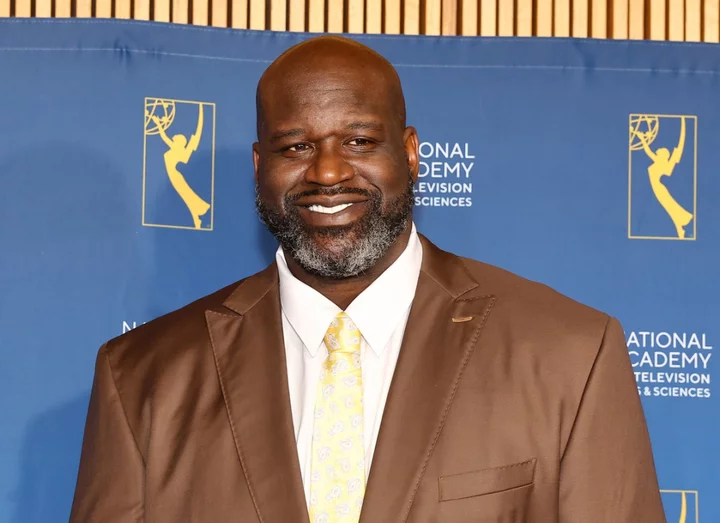
Shaquille O’Neal opens up about his 55-pound weight loss: ‘I couldn’t even walk up the stairs’
Shaquille O’Neal has spoken candidly about his fitness and health goals while opening up about his 55-pound weight loss. The former NBA star, 51, discussed his recent weight loss, and his “crazy goals” for himself, during an interview with Entertainment Tonight, where he revealed that he decided to change his lifestyle after realising he couldn’t “walk up the stairs”. “I was getting chubby and couldn’t even walk up the stairs. I didn’t like the way I looked in the mirror,” he explained. “I was like, ‘I’m gonna lose 20’ and then I was trying to lose 20.” According to O’Neal, who weighed 406 pounds at the start of his journey, he began by exercising, with the Los Angeles Lakers legend then changing his eating habits as well. He told the outlet that his goal is now to be “between 315 and 330 [pounds],” which he said is what he weighed when he helped lead the Miami Heat to their first NBA title in franchise history in 2006. In addition to losing more weight, the basketball star, who is 7ft 1in, also wants to achieve an “eight pack,” although he joked that he’s halfway to his goal. “I’ve got a five-pack now so I’ve got seven more packs to go because I want to take my shirt off on Instagram,” he said. This is not the first time that O’Neal has opened up about his fitness transformation, as he told the outlet in December that he was inspired to get healthy after a friend called him “fat”. “I got a couple people involved - it’s all about eating right. I got some blood work done, a friend of mine called me and said: ‘You’re fat,’ and she gave me this guy’s name, and he did some blood work, and you know, ‘cause I was the athlete - I wasn’t a salad eater. I won’t pay attention to any of that. I don’t care about none of that,” he recalled at the time. According to O’Neal, he also hadn’t known the difference between “a carb and a protein”. “At 50 years old I never knew. So, he was saying you can’t do this, you can’t do that, more vegetables, my iron’s low. And once I just started changing those certain things, it dropped,” he said. Read More Shaquille O’Neal says he follows ‘respectable nepotism’ philosophy when it comes to his children Shaquille O’Neal surprises family by paying for their washer and dryer at Home Depot
2023-09-02 02:51

Khloe Kardashian officially changes son Tatum’s last name to Thompson
Khloe Kardashian has officially changed her son Tatum’s last name, one year after his birth. A Los Angeles county judge granted the name change for the baby – who Kardashian shares with ex Tristan Thompson – on 31 August, according to documents obtained by US Weekly. In June, the publication had first reported that Tatum’s last name was initially listed as “Kardashian” on his birth certificate. Now, the 13-month old has been granted a new surname, which is the same as his father’s, officially decreeing him “Tatum Thompson”. Similar to law in other states, California law allows parents to pick if they want their child to have their father or mother’s last name. Parents can also do the combination of the two, and give the baby a surname with a hyphen in between the two last names. The law states that whatever last name is picked will be permanent, as a court order is required to change the name. In July 2022, the former couple welcomed their child, Tatum, together via surrogate. They also share a five-year-old daughter, True. The arrival of the pair’s second baby came months after they ended their on-and-off relationship, when Thompson confirmed he fathered a son with fitness instructor Maralee Nichols. In the most recent season of The Kardashians, the Good American founder has also spoken candidly about raising her son. During an episode of season three, which aired in June, she admitted to feeling less bonded to her son born via surrogacy than her daughter True, who she birthed herself. “With True, it took me a couple of days to be like, okay, this is my daughter,” Kardashian said. “With him, it’s taken me months. I love him and I love kids but, I still don’t have that complete bond.” Kardashian added that she sometimes felt “guilty” that she hadn’t bonded with her son in the same way as her daughter. “I’m like, why isn’t it the same? But I know it will be and I know, like, I don’t treat him differently. I just question myself sometimes,” she explained. Despite her challenges and feelings about her son, Kardashian also acknowledged that she was being hard on herself. “I wish I wasn’t so critical of myself because I’m very kind to everyone else,” Kardashian said in her confessional. “I’m just not very kind to myself.” “But being a mom is truly one of the most magical experiences ever,” she added. In July, Kardashian took to Instagram to share a series of photos of Tatum in honour of his first birthday. She also included a sweet tribute about her relationship with her son, in which she expressed how ​“God knew [her] heart needed” him when he was born. “I am so proud to be your mommy. So proud of the love and laughter we have in our house. So proud of your beautiful, gentle, loving, infectious spirit. You light up every single room. There’s no denying that everyone smiles when they look at you!” she wrote. “Especially True, she is so proud to call you hers.” Read More Khloe Kardashian denies disrespecting Halle Berry and says ‘don’t tear me apart’ amid Tristan Thompson reports Khloe Kardashian reveals ex Tristan Thompson and his brother moved in with her after their mother died Kylie Jenner addresses the ‘misconceptions’ she’s had plastic surgery Khloe Kardashian officially changes son Tatum’s last name to Thompson Khloe Kardashian takes swipe at ‘hater’ for insulting sister Kim How did man who dodged theme parks due to his weight lose nearly 60kg?
2023-09-01 23:17
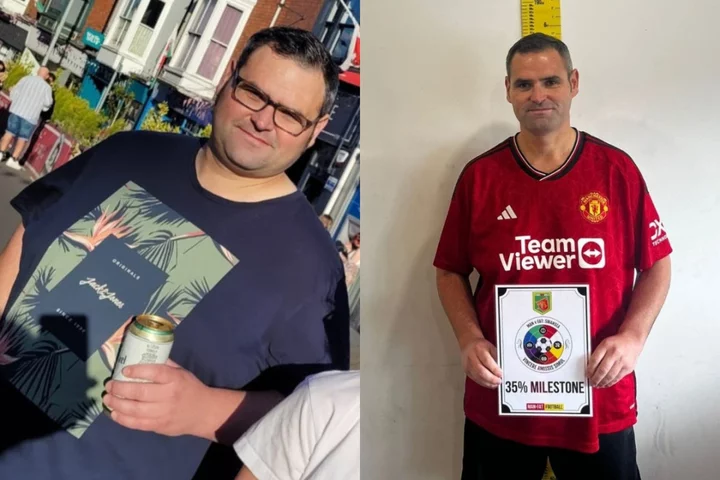
How did a man who dodged theme parks due to his weight lose nearly 60kg in under a year?
A man who “had anxiety all the time” because of his weight has lost more than 58.5kg after rediscovering his love of football and playing a weekly game of seven-a-side, and has now “gained a lot more confidence” and says his anxiety is “more controllable”. Kyle Bamford, 40, a scrap operative, who lives in Swansea, South Wales, with his wife Deborah, 41, and their three children, Caitlin, 18, Masie, 14, and Lola, 11, reached his heaviest weight in 2022, weighing around 161.5kg. At the time, he “suffered quite badly with depression”, “drank a lot”, comfort ate and even avoided socialising because he thought “people were judging (him)”. After coming across a friend’s social media post about Man V Fat, a weight loss programme that encourages overweight men to play football once a week, he had a “wake-up call” and decided to sign up. Since joining the club, in October 2022, Kyle has gone from a size XXXXXL to XL, lost 10 inches on his waist, and has lost 58.5kg – although, he still has to remind himself “that this is a big achievement”. Kyle admits that he still has “anxiety and nerves” but thinks it has got “a lot better” since losing weight. He has also noticed that the pain he was feeling “vanished overnight” and he can now do more things with his children – before, he was “too anxious” to go to theme parks with them as he was scared he could not fit on the rides. Kyle’s next goal is to get down to 99.9kg and he is considering playing football “competitively” once a week, as well as the weekly Man V Fat sessions. He told PA Real Life: “Before I lost weight, my wife said to me that when our kids grow up, I might not be able to do anything with them without getting out of breath. “I’d never go to theme parks, and I’d think of excuses because I was anxious of not fitting on the rides. “And now, I’ve got no problem with that. “My wife has also said that I’m more confident and she can notice that I’m happier too.” In early 2022, Kyle reached the heaviest weight he has ever been, weighing 161.5kg, with a BMI of 50.9 making him obese, and it began to take a toll on his mental health. He said: “I was just depressed and just had anxiety all the time. “I suffered quite badly with depression and I just drank a lot – eating was comforting more than anything. “I was quite anxious buying clothes and socialising, and I didn’t like seeing anyone from my past because I was smaller then. “I hated going to parties and things like that because I thought people were judging me.” In October 2022, one of his friends posted on Facebook about a weight loss programme called Man V Fat which involves overweight men playing football once a week. Kyle said: “I always enjoyed football and sports, and when I put the weight on, I fell out of love with it and lost interest in it. “When I saw my friend’s progress on Facebook, I couldn’t believe how much he had lost. “I signed up to Man V Fat when I was drunk and completely forgot about it. “When I got the call from them, I had a bit of anxiety and it was a bit of a shock but once I considered it, it felt like a wake-up call that I had to do something about my weight.” The following week, Kyle went to his first football session. He explained how the programme works: “At the start of the season, you register your weight and then you get weighed every week from then on. “You’re on a football team, and that gives you an incentive to lose weight because you play a 28-minute game of football, and if you have not lost weight, the other team gets points. “If you have lost weight, your team gets penalties.” After attending a few sessions, Kyle began to notice a difference in his weight and made small changes in his diet. He said: “My wife and I are very fussy, we like all the bad stuff really, to be honest. “But one thing I did do is cut out takeaways and pop, and I did see a big difference with just those two changes. “My guilty pleasure was on a weekend, after heavy drinking, I would order a takeaway, but I stopped doing that.” Kyle also started to track his calories on the MyFitnessPal app, and the more he lost, the more motivated he felt. He explained: “I stuck to MyFitnessPal religiously, and I think within the first month of joining Man V Fat, I was looking for excuses to quit. “I had all the negative thoughts go through my head, but I did stick at it. “I stepped on the scales a couple of weeks at a time, and I noticed my weight was dropping. “Something clicked in my head and I wanted to see how far I could go.” After 10 months of weekly football sessions and sticking to a calorie deficit, and now starting to go to the gym six times a week, Kyle has lost 58.5kg and is now 103.5kg. He said: “I always put myself down, and I have to remind myself that this is a big achievement. “I feel like I’ve gained a lot more confidence, but I still suffer with anxiety and nerves, but it’s a lot better and it’s a lot more controllable now. “I did suffer a lot of pain before I lost weight and it vanished overnight. “Now I go to parties and I definitely come out of my shell more easily.” Looking to the future, Kyle’s next goal is to get his weight down to double figures. He said: “I think 99.9kg is my goal – it will be hard but I think I can do it. “Now I’m back playing football I’m actually enjoying it again, and I’m looking to start playing competitively on a Saturday. “So at the age of 40, I think that is an achievement in itself because I feel like I can do it again.” Read More ‘I felt like a freak’: Woman’s bullying over skin blistering disorder Daniel Radcliffe credits his parents for helping him stay in shape What are the symptoms of prostate cancer and how common is it? ‘I felt like a freak’: Woman’s bullying over skin blistering disorder Daniel Radcliffe credits his parents for helping him stay in shape What are the symptoms of prostate cancer and how common is it?
2023-09-01 22:55
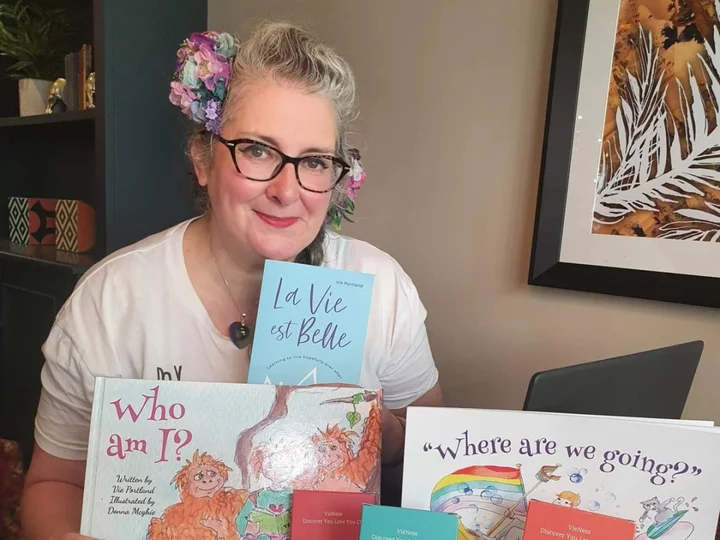
Woman bullied over skin blistering disorder writing books to stop other children ‘feeling like freaks’
A woman who was born with a rare inherited skin blistering disorder which caused her to get “bullied” and feel “like a freak” throughout her childhood and teenage years, as well as forcing her onto a soft food diet of “bananas and custard” for weeks at a time, now writes inclusive children’s books with a focus on disability to encourage “other children to grow up with confidence”. Vie Portland, a 52-year-old confidence coach, author and speaker from Winchester, was born with epidermolysis bullosa simplex generalised intermediate but was not formally diagnosed with the skin condition until she was 28. According to the NHS, epidermolysis bullosa (EB) is a rare inherited skin disorder that causes the skin to become very fragile, and any trauma or friction to the skin can cause painful blisters. Vie is yet to find a treatment that helps her condition, and her feet are regularly covered with huge internal blisters which feel like she has “stones under (her) skin.” Her condition even means that she cannot eat “anything acidic or too peppery” and often spends weeks eating “just bananas and custard”. She has also developed thoracic outlet syndrome, chronic bursitis, and often has spasms, because of walking with a limp to try to ease the pain. Now, Vie writes inclusive children’s books to raise awareness about living with a disability, because she grew up “afraid that there was no one else like (her)”, and hopes to write a book about someone with her condition next. Vie told PA Real Life: “So it feels like I’ve got stones under my skin all the time on my feet and it doesn’t matter how much you try to explain that to someone people just don’t get it. “Even things like if I meet friends for a drink in a lovely pub garden – I’ll be in agony because of walking on gravel and it takes so much energy out of me. “I can’t eat anything acidic or too peppery – sometimes I have to eat just bananas and custard for weeks.” Vie was born with the skin condition, saying: “I was born with no skin on my bottom and had some skin missing on my left foot. “The charity that works with people that have EB wasn’t around then – I spoke to someone recently from Debra, the charity, and they said if you looked at all the people on a double-decker bus, you’d expect to find at least one person with psoriasis. “But, you’d have to wait for over 700 buses before you met someone with EB.” As a child, Vie regularly had huge blisters all over her feet and the back of her heels. She explained: “I remember wearing jelly shoes one summer, and heat and friction are two of my triggers. “Throughout the day, blisters grew around the rubber shoes and I had to have the pair of shoes cut off my feet – it was excruciating.” When Vie was a teenager, she was very self-conscious of her condition, she explained: “I was in constant pain, and I struggled with all shoes and walking anywhere. “We’re always told not to pop blisters, but when you have EB they tell you to pop them because they get so big. “I didn’t know that at the time and it was just so painful. “People were noticing how I walk and I was embarrassed to show my feet – I didn’t have a normal childhood because of this. “Even something as simple as opening a bottle makes several layers of skin come off and cause me to have raw skin all over my hands, I was told this was weird by other people.” Doctors were baffled by Vie’s condition, over the years, she was told she had different types of eczema and even that she was allergic to her own sweat. But, at age 28, she was diagnosed with EB by a dermatologist in London. She said: “I just grew up believing that it was my fault and I was afraid that there was no one else like me.” “It all just made sense. “They even took pictures of my feet for a medical journal because it was so rare.” After getting her diagnosis, Vie began researching the charity DEBRA, which specialises in EB. She said: “I started finding out that there were people like me – it was amazing, growing up, I was bullied and felt like a freak.” Since then, Vie has sadly not been able to find a treatment that helps her condition. “There’s no cure for EB but things have moved on a lot over the past 20 years,” she said. “We have special types of dressings and creams which can help alleviate the pain.” On top of this, because Vie has been walking “unusually” for most of her life, she has developed thoracic outlet syndrome, chronic bursitis, and often has spasms. Vie said: “It can be frustrating at times because it just feels like no one will ever understand what it is like. “For most people, blisters are a bit painful, but it’s all right, but for me, it’s one of the worst pains in the world.” Now, Vie is focussing on raising awareness about living with a disability, and has recently written two inclusive children’s books called ‘Where Are We Going?’ and ‘Who Am I?’. She said: “I want other children to grow up with confidence and not to feel like a freak like me. “Children aren’t born with prejudice and I think it’s really important to teach them about all of our amazing cultures and worlds. “In my books, I don’t explicitly say the character is disabled until the discussion questions at the end – I want the character to be accepted and not defined by their disability. “I think people have more in common with each other than things that are different, and that’s a beautiful thing. “I’m hoping to write a book about someone with my condition – that’s my next plan.” Read More Charity boss speaks out over ‘traumatic’ encounter with royal aide Ukraine war’s heaviest fight rages in east - follow live Fraser Franks undergoing heart surgery – four years after ‘hidden’ condition cut short football career 4 viral TikTok make-up trends you’ll actually want to try Childhood Cancer Awareness Month: What are the warning signs that your child might have cancer?
2023-09-01 21:15
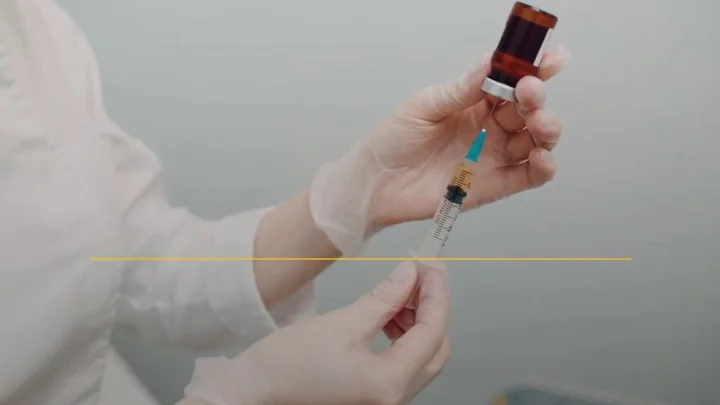
Scientists believe they have found a cure for alcoholism
Alcohol addiction ruins millions of lives every year, but scientists may have found a cure for this terrible affliction. A new treatment for alcohol use disorder (AUD) has been trialled in monkeys with impressive results and, if these translate to human trials, the impact could be monumental. A team of neuroscientists and physiologists from across the US tested a new type of gene therapy to see if they could directly target the underlying brain circuitry associated with sustained heavy drinking. As they noted, in the journal Nature Medicine, people suffering from AUD commonly return to alcohol use even if they attempt to quit. This is largely to do with what’s known as mesolimbic dopamine (DA) signalling – meaning how the central nervous system circuit communicates the feelgood neurotransmitter dopamine. A protein called glial-derived neurotrophic factor (GDNF) is key to keeping these neurons in this reward circuitry functioning. However, experts have found that levels of GDNF are reduced in people with AUD during periods of alcohol abstinence, most notably in a region of the brain called the ventral tegmental area (VTA), as IFLScience notes. Therefore, the researchers decided to test whether using gene therapy to deliver more GDNF to the VTA could help reinforce this crucial dopaminergic signalling and prevent patients from suffering an alcoholic relapse. The team of scientists explained how alcohol consumption in non-addicts prompts the release of dopamine, creating a pleasurable buzz feeling, but chronic alcohol use causes the brain to adapt and stop releasing so much dopamine. “So when people are addicted to alcohol, they don’t really feel more pleasure in drinking,” Dr Kathleen Grant, a senior co-author of the study, said in a statement. “It seems that they’re drinking more because they feel a need to maintain an intoxicated state.” For their research, Dr Grant and her colleagues used eight rhesus macaque monkeys, who were exposed to increasing concentrations of alcohol over four 30-day “induction” periods. The monkeys then had free access to alcohol and water for 21 hours a day for six months, during which they developed heavy drinking behaviours. This was then followed by a 12-week abstinence phase, with the GDNF treatment performed four weeks in for half of the subjects. The gene therapy was delivered using a a viral vector containing a copy of the human GDNF gene injected directly into the primate’s VTA, according to IFLScience. And the results were truly jaw-dropping. “Drinking went down to almost zero,” Dr Grant said. “For months on end, these animals would choose to drink water and just avoid drinking alcohol altogether. They decreased their drinking to the point that it was so low we didn’t record a blood-alcohol level.” The most exciting aspect of their findings is the suggestion that gene therapy could offer a permanent solution for people with the most severe cases of AUD. This will be a welcome glimmer of hope to many, given that some 29.5 million people were diagnosed with AUD in the US alone in 2021, according to the National Institute on Alcohol Abuse and Alcoholism. Of these 29.5 million sufferers, almost a million (894,000) were aged between 12 and 17. It’ll likely be some time before we know for sure whether the gene therapy can be rolled out in humans, but it’s an important first step in tackling this devastating disorder. Sign up for our free Indy100 weekly newsletter Have your say in our news democracy. Click the upvote icon at the top of the page to help raise this article through the indy100 rankings.
2023-09-01 20:57

Panasonic Is Testing 'Power-Generating Glass' Panels for Buildings
Panasonic is testing "power-generating glass" which it expects to start selling by 2028 for use
2023-09-01 20:22
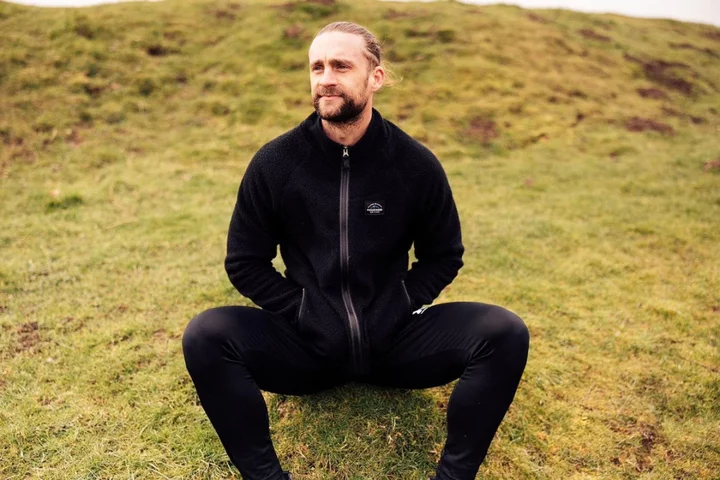
Fraser Franks undergoing heart surgery – four years after ‘hidden’ condition cut short football career
Former Newport defender Fraser Franks faced a difficult “grieving process” when a heart problem cut short his football career at age 28. But four years on, as he prepares for surgery that will ultimately save his life, he is “grateful” the condition was picked up early – as many people aren’t even aware they’re at risk. “I’ll be having a mechanical valve fitted and work done on my aorta,” Franks, now 32, told PA Media. His surgery is set for September 4. “It is a big operation and I’ll be in hospital for about 10 days. And the recovery after, I won’t be able to lift anything, even a bag of shopping, for two to three months. With a four-year-old daughter, that’s going to be difficult for me and her,” added Franks, who shares daughter Nellie with his wife, former S Club 8 singer Stacey McClean. “It’s been a lot to get my head around. There will be certain things I can’t do afterwards and a lot of lifestyle adjustments, but I’m really happy and content with it. I’m grateful that this has been found and that there’s a solution for me, where unfortunately a lot of people haven’t got that. “I’ve had conversations with cardiologists and surgeons [who’ve said] this is going to save my life, I probably wouldn’t live much longer with the heart I’ve currently got. So I’m really grateful for that, and it’s only through playing for a professional football club that this was picked up.” Franks was born with a bicuspid valve – meaning his aortic valve, which helps control blood flow in the heart, had two cusps (flaps) instead of the usual three. The condition is believed to affect around one in every 100 people, but it often doesn’t cause symptoms and only becomes serious if the valve begins to leak or develops severe narrowing (aortic stenosis), which is what has happened in Franks’ case. A routine medical at 16 first picked up the defect. Franks, who signed with Chelsea at age eight, had always been fit and healthy, but when he signed with Brentford at 16, like all players joining pro clubs he was given a heart scan. Further investigations revealed the bicuspid valve, but because it wasn’t causing problems, he was given the green light to continue as normal. Franks carried on, trying not to give it too much thought – until at 28, he suddenly started feeling unwell after a game and was rushed to hospital the next day, worried he was having a heart attack. “I wasn’t having a heart attack or anything like that, but I contracted an infection. While I was in there though, I told them I’d had this heart issue when I was 16, so they scanned me and saw the condition had worsened,” he recalled. “I’d developed aortic stenosis and the valve was leaking a lot more. Then it was deemed unsafe for me to carry on playing football, so I had to stop playing there and then.” London-born Franks has teamed up with the British Heart Foundation for their September Spotlight campaign, which aims to shine a spotlight on hidden heart conditions. His story highlights how heart problems can potentially affect anyone – including those who are young and seemingly very fit and healthy. Even when symptoms are mild or barely noticeable, undetected issues could become serious and even life-threatening, which is why research and awareness are so vital. Plus, as Franks has experienced, there are complex layers and emotional challenges to living with a hidden heart condition too. Being forced to suddenly retire early when he’d previously felt fine – and still looked well on the outside – was tough. “Ever since age eight, I’d been known as ‘the footballer’. It had been my whole identity, so to retire at 28 out of the blue was difficult,” Franks explained. “I think I kidded myself in the first six months, where I was saying, ‘Yeah I’m fine, I’m enjoying retirement and all that good stuff’. But I was really struggling and drinking heavily. “I reached out and got some help and had to do a lot of therapy. It really is a grieving process, and I had to figure out who I was and what I enjoyed away from being ‘the athlete’. “And I didn’t play at the top level, so I didn’t have savings in the bank – I had to pretty much get to work straight away and earn a living. My wife was heavily pregnant then too, so there was a lot of stress and overwhelm at that period.” Yoga and meditation also proved a huge help in coming to terms with everything, and Franks has since found a new sense of purpose, channelling his experiences into helping others. “I do a lot of work around addiction and alcohol now, because I really struggled with those things. That’s become a big part of what I do now, helping people who want to transition away from sport, and working with young athletes on addiction and mental health.” He took up yoga as a gentle form of exercise when doctors told him strenuous sport was too risky. “I just completely fell in love with it,” Franks added. “I’ve found a real passion for it. It’s actually a goal of mine now – it’s going to be something I’ll be thinking about when I’m in hospital – when I’m healed, I want to go to India or Bali and actually earn a qualification and get trained as a yoga teacher. “Instead of focusing on all the things I’m unable to do, that’s something I will be able to do. That brings me a lot of comfort.” This September, the BHF is shining a spotlight on hidden heart conditions and urging everyone to get involved by supporting the charity however they can, with stories, stuff, time or money. Visit spotlighton.bhf.org.uk Read More Charity boss speaks out over ‘traumatic’ encounter with royal aide Ukraine war’s heaviest fight rages in east - follow live 4 viral TikTok make-up trends you’ll actually want to try Childhood Cancer Awareness Month: What are the warning signs that your child might have cancer? How students heading to university can save some cash and budget wisely
2023-09-01 20:19

David Bowie’s fashion daughter Lexi declares art has helped her out of ‘dark places’
After the singer’s cancer death in 2016,David Bowie’s fashion designer daughter Alexandria Zahra Jones has says making art helped her battle mental health issues.
2023-09-01 19:27

Childhood Cancer Awareness Month: What are the warning signs that your child might have cancer?
It’s heart-breaking to see a child that’s seriously ill, particularly when they’ve got cancer and might not survive. But children do get the disease – and it’s being highlighted during September’s Childhood Cancer Awareness Month. Fortunately, it’s not common. But every day in the UK, 10 families receive a cancer diagnosis for their child, teenager or young adult, and it’s the leading cause of death in children under 14, according to the charity Children With Cancer UK (CWCUK). However, Jeanette Hawkins, chief nurse at the Children’s Cancer and Leukaemia Group (funded by Young Lives vs Cancer), stresses that childhood cancer isn’t as rare as people might think, with a similar risk as diabetes, epilepsy and bacterial meningitis. “Use of the word rare for childhood cancer is a barrier to diagnosis as both GPs and parents therefore don’t consider it’s possible,” she explains. “Families, on average, have three to five GP visits before cancer is suspected. We need to reduce that by increasing awareness. Remember that childhood cancer is often a constellation of non-specific persistent symptoms, rather than a single ‘red flag’ that would alert a GP. “If you’re worried about your child keep going back.” Christiana Ogunbote, head of research at CWCUK, says childhood cancer accounts for less than 1% of all cancers in the UK, and explains there are 12 main categories of cancers affecting children, with the most common being leukaemia (30%), brain, central nervous system (CNS), intracranial tumours (26%) and lymphomas (11%). Ogunbote says cancer symptoms in children can vary widely depending on the cancer type and where it is in the body, but points out: “Often the individual symptoms of cancer can be similar to common childhood illnesses, so it can be hard to identify. “If a symptom progresses or doesn’t get better as quickly as expected, we would suggest getting it checked out by a medical professional. It’s useful for parents who know what’s ‘normal’ for their child to be aware of the signs and symptoms of cancer, as earlier diagnosis will support better outcomes for children and young people.” Here, Ogunbote outlines the symptoms of the three most common childhood cancers… 1. Leukaemia Symptoms of leukaemia in children and babies, which may be acute myeloid or acute lymphoblastic leukaemia (ALL), can include frequent and persistent infections, unusual bleeding and/or bruising, tiredness, paleness, breathlessness and, with ALL, coughing and anaemia. “Childhood leukaemia develops quickly,” says Ogunbote. “but it’s possible for some or all of these symptoms to be apparent.” She says a leukaemia diagnosis can be made from a blood test, which may reveal low numbers of normal white blood cells and large numbers of abnormal white blood cells. Further tests will then be done on a sample of bone marrow to confirm the diagnosis. 2. Brain and spinal tumours The symptoms of brain and spinal tumours (central nervous system tumours) vary between age groups, says Ogunbote, but symptoms in babies may include persistent/recurrent vomiting, balance/co-ordination/walking problems, abnormal eye movements or suspected loss of vision, behaviour change (particularly lethargy), fits or seizures (not with a fever), abnormal head position such as head tilt or stiff neck, and increasing head circumference. Children’s brain tumour symptoms are similar to symptoms in babies, but may also include a persistent/recurrent headache, blurred or double vision, fits or seizures, reduced consciousness and abnormal growth. Ogunbote says symptoms vary depending on the type and site of the tumour, and develop much more slowly with low grade tumours. But she stresses: “It’s important to remember that many of these symptoms are extremely common, and experiencing one by itself is rarely a sign of a brain tumour.” A CT or MRI scan will be done if a brain tumour is suspected, and if the scan confirms the diagnosis, further investigations will determine the type of tumour and best treatment. 3. Lymphoma Children may get a cancer of the lymphatic system known as either Hodgkin or non-Hodgkin lymphoma, and Ogunbote says symptoms of both include a persistent (lasting a few weeks) painless swelling of a single lymph gland, usually in the neck, or possibly in the armpit or groin with non-Hodgkin, a cough or breathlessness (if glands in the chest are affected), fevers, sweats, and weight loss. There may be itching with Hodgkin lymphoma, and with non-Hodgkin there may be tiredness, feeling full after a small meal, stomach pains (if abdominal lymph glands are affected), and sleep sweats. Diagnosis is confirmed by removing part or all of an affected lymph gland, usually under general anaesthetic, and doing a biopsy on it so the cells can be examined in a laboratory. Further tests, like x-rays, CT and MRI scans and blood tests, will also be carried out to determine the size and position of the lymphoma and whether it has spread. This is known as staging. “Many of the symptoms of lymphoma can also be symptoms of other illnesses, so this can make it difficult to diagnose,” explains Ogunbote. “Symptoms your child might experience depend on where the lymphoma is in their body, and symptoms vary from child to child, even if they have the same type of lymphoma.” Read More Charity boss speaks out over ‘traumatic’ encounter with royal aide Ukraine war’s heaviest fight rages in east - follow live 4 viral TikTok make-up trends you’ll actually want to try Daily aspirin dose could help prevent diabetes in older people – researchers Secondhand September: The best places to buy pre-loved fashion online
2023-09-01 16:21
